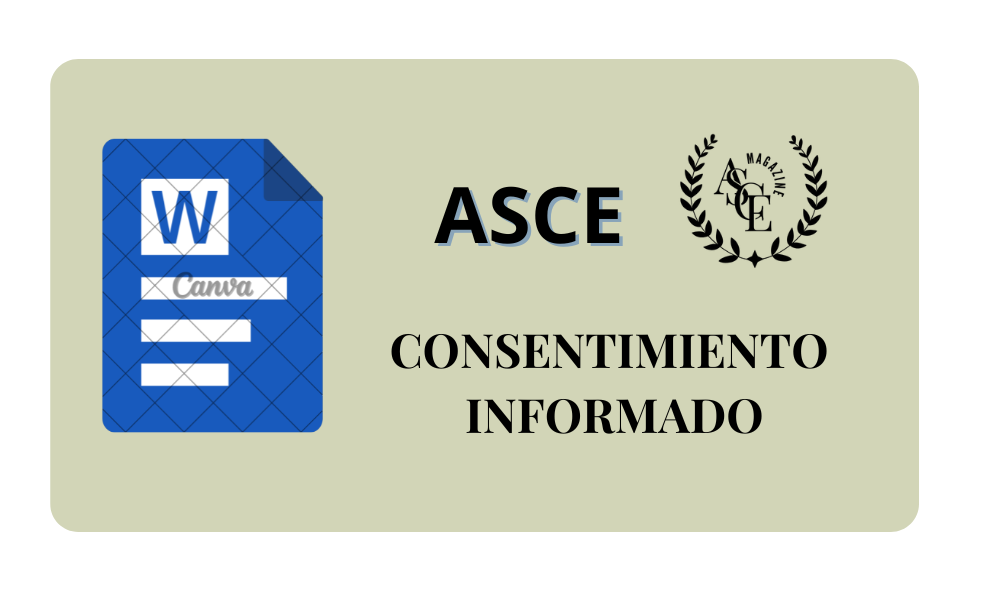Inteligencia artificial y neuroeducación en el aprendizaje del inglés: un enfoque innovador para la participación cognitiva y la instrucción adaptativa
DOI:
https://doi.org/10.70577/ASCE/2537.2557/2025Palabras clave:
Inteligencia Artificial, Neuroeducación, Aprendizaje del Inglés, Instrucción Adaptativa, Participación Cognitiva, Resolución de Problemas Complejos, Innovación Educativa.Resumen
Este trabajo investiga la implementación y resultados de integrar la prueba de inteligencia artificial y la neurociencia en una clase de inglés, como una de las muchas aplicaciones en la innovación y disrupción en la educación. Utilizamos el modelo de intervención de secuencia explicativa, primordialmente la cuantitativa, con el diseño de un pretest y post test con control, fondo de nab plateau adaptatif lev de I and I and R, and I and II, e neuroadapt CS interface PIC. Luego, la fase fue conducida con entrevistas semiestructuradas (n=20). Los hallazgos muestran una mejora significativa en la habilidad de lectura (≈+10 puntos en comparación con el control), mejora en la motivación y reducción de la ansiedad. Los registros de compromiso cognitivo durante el EEG mostraron un mayor compromiso durante las tareas adaptadas. Qualitativamente, los participantes enfatizaron la personalización efectiva, el aumento de la autonomía y la reducción del estrés, así como percepciones favorables sobre la usabilidad del sistema. En términos de resolución de problemas complejos, el enfoque mejoró la transferencia de estrategias metacognitivas y comunicativas a la síntesis y argumentación, mientras que, de manera sistémica, el enfoque sugiere un cambio en la orquestación pedagógica: de un diseño homogéneo a ecosistemas de aprendizaje adaptables regidos por datos y ética. La sinergia de la IA y la neuroeducación optimiza la instrucción adaptativa y el compromiso, y la participación a nivel cognitivo, lo que proporciona un camino viable para una educación transformadora escalable.
Descargas
Citas
Alarcon Burneo , S. N., Basantes Guerra, J. P., Chaglla Lasluisa, W. F., Carvajal Coronado, D. E., Martínez Oviedo, M. Y., Vargas Saritama, M. E., & Bernal Parraga, A. P. (2024). Uso de Recursos Manipulativos para Mejorar la Comprensión de Conceptos Matemáticos Abstractos en la Educación Secundaria. Ciencia Latina Revista Científica Multidisciplinar, 8(5), 1972-1988. https://doi.org/10.37811/cl_rcm.v8i5.13669 DOI: https://doi.org/10.37811/cl_rcm.v8i5.13669
Albán Pazmiño , E. J., Bernal Párraga, A. P., Suarez Cobos , C. A., Samaniego López, L. G., Ferigra Anangono, E. J., Moreira Ortega, S. L., & Moreira Velez, K. L. (2024). Potenciando Habilidades Sociales a Través de Actividades Deportivas: Un Enfoque Innovador en la Educación. Ciencia Latina Revista Científica Multidisciplinar, 8(4), 3016-3038. https://doi.org/10.37811/cl_rcm.v8i4.12549 DOI: https://doi.org/10.37811/cl_rcm.v8i4.12549
Arequipa Molina, A. D., Cruz Roca, A. B., Nuñez Calle, J. J., Moreira Velez, K. L., Guevara Guevara, N. P., Bassantes Guerra, J. P., & Bernal Parraga, A. P. (2024). Formación Docente en Estrategias Innovadoras y su Impacto en el Aprendizaje de las Matemáticas. Ciencia Latina Revista Científica Multidisciplinar, 8(4), 9597-9619. https://doi.org/10.37811/cl_rcm.v8i4.13111 DOI: https://doi.org/10.37811/cl_rcm.v8i4.13111
Awang, L. A. (2025). Current practices and future directions of artificial intelligence in math education. International Electronic Journal of Mathematics Education, 20(2), em0823. https://doi.org/10.29333/iejme/… DOI: https://doi.org/10.29333/iejme/16006
Baradari, D., Kosmyna, N., Petrov, O., Kaplun, R., & Maes, P. (2025). NeuroChat: A neuroadaptive AI chatbot for customizing learning experiences. arXiv preprint. https://arxiv.org/abs/2503.07599 DOI: https://doi.org/10.1145/3719160.3736623
Bernal Parraga , A. P., Coronel Ramírez, E. A., Aldas Macias , K. J., Carvajal Madrid, C. A., Valarezo Espinoza, B. D. C., Vera Alcivar, J. G., & Chávez Cedeño, J. U. (2025). The Impact of Artificial Intelligence on Personalized Learning in English Language Education. Ciencia Latina Revista Científica Multidisciplinar, 9(1), 5500-5518. https://doi.org/10.37811/cl_rcm.v9i1.16234 DOI: https://doi.org/10.37811/cl_rcm.v9i1.16234
Bernal Parraga , A. P., Naguas Nagua, J. A., Villarreal Bonifaz , M. M., Santillán Sevillano , N. D. C., Reyes Ordoñez, J. P., Carrillo Baldeón, V. P., & Macas Pacheco, C. (2025). Gamificación como estrategia innovadora para promover el aprendizaje significativo en Estudios Sociales. Ciencia Latina Revista Científica Multidisciplinar, 9(1), 1044-1061. https://doi.org/10.37811/cl_rcm.v9i1.15860 DOI: https://doi.org/10.37811/cl_rcm.v9i1.15860
Bernal Párraga , A. P., Ninahualpa Quiña, G., Cruz Roca, A. B., Sarmiento Ayala, M. Y., Reyes Vallejo, M. E., Garcia Carrillo, M. D. J., & Benavides Espín, D. S. (2024). Innovation in Early Childhood: Integrating STEM from the Area of Mathematics for Significant Improvement. Ciencia Latina Revista Científica Multidisciplinar, 8(4), 5675-5699. https://doi.org/10.37811/cl_rcm.v8i4.12779 DOI: https://doi.org/10.37811/cl_rcm.v8i4.12779
Bernal Parraga , A. P., Santin Castillo, A. P., Ordoñez Ruiz, I., Tayupanta Rocha, L. M., Reyes Ordoñez, J. P., Guzmán Quiña , M. de los A., & Nieto Lapo, A. P. (2024). La inteligencia artificial como proceso de enseñanza en la asignatura de estudios sociales. Ciencia Latina Revista Científica Multidisciplinar, 8(6), 4011-4030. https://doi.org/10.37811/cl_rcm.v8i6.15141 DOI: https://doi.org/10.37811/cl_rcm.v8i6.15141
Bernal Párraga, A. P., Alcívar Vélez, V. E., Pinargote Carreño, V. G., Pulgarín Feijoo, Y. A., & Medina Garate, C. L. (2025). Pensamiento lógico y resolución de problemas: El uso de estrategias de aprendizaje colaborativo para desarrollar habilidades de razonamiento matemático en contextos cotidianos. Arandu UTIC, 12 (1), 360–378. https://doi.org/10.69639/arandu.v12i1.605 DOI: https://doi.org/10.69639/arandu.v12i1.605
Bernal, A., & Guarda, T. (2020). La gestión de la información es factor determinante para elaborar estrategias innovadoras en política educativa pública. Iberian Journal of Information Systems and Technologies, (E27), 35-48. https://core.ac.uk/download/pdf/487026121.pdf#page=35
Chicaiza, V. A. P. (2025). Inteligencia artificial y aprendizaje de idiomas. Revista Veritas, 43(1), 115–130. https://revistaveritas.org/index.php/veritas/article/download/643/1176
Christou, E. (2025). Augmented reality in language learning: A systematic review. Journal name, [Issue], pages. https://doi.org/10.1080/17501229.2025.2504706 DOI: https://doi.org/10.1080/17501229.2025.2504706
Cosquillo Chida , J. L., Burneo Cosios, L. A., Cevallos, F. R., Moposita Lasso, J. F., & Bernal Parraga, A. P. (2025). Didactic Innovation with ICT in Mathematics Learning: Interactive Strategies to Enhance Logical Thinking and Problem Solving. Revista Iberoamericana De educación, 9(1), 269–286. https://doi.org/10.31876/rie.v9i1.299 DOI: https://doi.org/10.31876/rie.v9i1.299
D’Souza, K. (2024). Artificial intelligence in education: Ethical considerations for data use and student protection. Education and Information Technologies, 29(3), 389–402. https://doi.org/10.1007/s10639-023-11645-8
Daud, A., Aulia, A. F., et al., (2025). Integrating artificial intelligence into English language teaching: A systematic review. European Journal of Educational Research, 14(2), 677–691. https://doi.org/10.12973/eu-jer.14.2.677 DOI: https://doi.org/10.12973/eu-jer.14.2.677
Foltynek, T., Guerrero-Dib, J., & Weber-Wulff, D. (2023). Ethics and integrity in the age of artificial intelligence: Challenges for education. International Journal for Educational Integrity, 19(7), 1–18. https://doi.org/10.1007/s40979-023-00133-4 DOI: https://doi.org/10.1007/s40979-023-00133-4
Granado de la Cruz, E. (2025). Education, neuroscience, and technology: A review of emerging educational technologies. Information, 16(8), 664. https://doi.org/10.3390/info1608XXXX DOI: https://doi.org/10.3390/info16080664
Guishca Ayala , L. A., Bernal Parraga, A. P., Martínez Oviedo, M. Y., Pinargote Carreño, V. G., Alcívar Vélez, V. E., Pinargote Carreño, V. L., Pisco Mantuano, J. E., Cardenas Pila, V. N., & Guevara Albarracín , E. S. (2024). Integración De La Inteligencia Artificial En La Enseñanza De Matemáticas Un Enfoque Personalizado Para Mejorar El Aprendizaje. Ciencia Latina Revista Científica Multidisciplinar, 8(6), 818-839. https://doi.org/10.37811/cl_rcm.v8i5.14114 DOI: https://doi.org/10.37811/cl_rcm.v8i5.14114
Holmes, W., Porayska-Pomsta, K., & Holstein, K. (2022). Ethics of artificial intelligence in education: Towards a community-wide framework. International Journal of Artificial Intelligence in Education, 32(3), 504–526. https://doi.org/10.1007/s40593-021-00239-1 DOI: https://doi.org/10.1007/s40593-021-00239-1
Hossain, S., Sommer, N., & Adib, N. (2025). Exploring the integration of extended reality and artificial intelligence for remote STEM education and assessment. arXiv preprint. https://doi.org/10.31537/…
Jara Chiriboga , S. P., Troncoso Burgos, A. L., Ruiz Avila, M. M., Cosquillo Chida, J. L., Aldas Macias, K. J., Castro Morante, Y. E., & Bernal Párraga, A. P. (2025). Inteligencia Artificial y Aprendizaje Personalizado en Lenguas Extranjeras: Un Análisis de los Chatbots y los Asistentes Virtuales en Educación. Revista Científica De Salud Y Desarrollo Humano , 6(1), 882–905. https://doi.org/10.61368/r.s.d.h.v6i1.515 DOI: https://doi.org/10.61368/r.s.d.h.v6i1.515
Jara Chiriboga, S. P., Valverde Alvarez, J. H., Moreira Pozo, D. A., Toscano Caisalitin, J. A., Yaule Chingo, M. B., Catota Quinaucho, C. V., & Bernal Parraga, A. P. (2025). Gamification and English Learning: Innovative Strategies to Motivate Students in the Classroom . Revista Científica De Salud Y Desarrollo Humano , 6(1), 1609–1633. https://doi.org/10.61368/r.s.d.h.v6i1.549 DOI: https://doi.org/10.61368/r.s.d.h.v6i1.549
Osorio Vanegas, H. D. (2025). Educational technology in teacher training: A systematic review. Education Sciences, 15(8), 1036. https://doi.org/10.3390/educsci15081036 DOI: https://doi.org/10.3390/educsci15081036
Mora Villamar, F. M., Bernal Párraga, A. P., Molina Ayala, E. T., Salazar Veliz, E. T., Padilla Chicaiza, V. A., & Zambrano Lamilla, L. M. (2024). Innovaciones en la didáctica de la lengua y literatura: estrategias del siglo XXI. Ciencia Latina Revista Científica Multidisciplinar, 8(3), 3852-3879. https://doi.org/10.37811/cl_rcm.v8i3.11595 DOI: https://doi.org/10.37811/cl_rcm.v8i3.11595
Mouta, S., & Luckin, R. (2024). AI in education: Emerging ethical challenges and governance frameworks. International Journal of Artificial Intelligence in Education, 34(2), 155–172. https://doi.org/10.1007/s40593-023-00384-9 DOI: https://doi.org/10.1007/s40593-023-00384-9
Nguyen, T. (2023). Equity, fairness, and accountability in artificial intelligence for education: Addressing algorithmic bias. Education and Information Technologies, 28(5), 6125–6143. https://doi.org/10.1007/s10639-022-11316-w DOI: https://doi.org/10.1007/s10639-022-11316-w
Padilla Chicaiza, V. A., Chanatasig Montaluisa, B. M., Moreira Cedeño, J. del C., Molina Ayala, E. T., Estela Teresa, S. V., & Bernal Parraga, A. P. (2025). Inteligencia Artificial y Aprendizaje de Idiomas: Personalización del Aula de Inglés a Través de Plataformas Adaptativas. Revista Veritas De Difusão Científica, 6(2), 477–506. https://doi.org/10.61616/rvdc.v6i2.643 DOI: https://doi.org/10.61616/rvdc.v6i2.643
Parmaxi, A. (2024). Exploring augmented reality instruction in the English classroom: A qualitative study. ECLL Proceedings, [Vol/Issue], pages. https://doi.org/…
Peña-Acuña, B. (2024). Learning English as a second language with artificial intelligence: personalization, pronunciation improvement, and cultural understanding. Frontiers in Education, 9, 1490067. https://doi.org/10.3389/feduc.2024.1490067 DOI: https://doi.org/10.3389/feduc.2024.1490067
Pradeep, K. (2024). Neuroeducation: Understanding neural dynamics in pedagogical strategies. Frontiers in Education, 9, 1437418. https://doi.org/10.3389/feduc.2024.1437418 DOI: https://doi.org/10.3389/feduc.2024.1437418
Qiao, H. (2023). Artificial intelligence-based instruction improves L2 speaking skills and self-regulation: Quasi-experimental study with Duolingo. Frontiers in Psychology, 14, 10652775. https://doi.org/10.3389/fpsyg.2023.10652775 DOI: https://doi.org/10.3389/fpsyg.2023.1255594
Qin, L. (2024). Adaptive system of English-speaking learning based on artificial intelligence. Journal of Electrical Systems, 20(6 s), 267–275. https://doi.org/10.52783/jes.2637 DOI: https://doi.org/10.52783/jes.2637
Santana Mero, A. P., Bernal Párraga, A. P., Herrera Cantos, J. F., Bayas Chacha, L. M., Muñoz Solorzano, J. M., Ordoñez Ruiz, I., Santin Castillo, A. P., & Jijon Sacon, F. J. (2024). Aprendizaje Adaptativo: Innovaciones en la Personalización del Proceso Educativo en Lengua y Literatura a través de la Tecnología. Ciencia Latina Revista Científica Multidisciplinar, 8(4), 480-517. https://doi.org/10.37811/cl_rcm.v8i4.12292 DOI: https://doi.org/10.37811/cl_rcm.v8i4.12292
Shiwlani, A., Hasan, S. U., & Kumar, S. (2025). Artificial Intelligence in Neuroeducation: A systematic review of AI applications aligned with neuroscience principles for optimizing learning strategies. Journal of Development and Social Sciences, 5(4), 578–590. https://doi.org/10.47205/jdss.2024(5‑IV)50
Torres Illescas, V., Villacrés Prieto, P., Román Cabrera, J., Bernal Párraga, A. (2024). Charting the Path of Reading Development: A Study on the Importance and Effective Strategies for Reading in Early Ages Based on Technology. In: Gervasi, O., Murgante, B., Garau, C., Taniar, D., C. Rocha, A.M.A., Faginas Lago, M.N. (eds) Computational Science and Its Applications – ICCSA 2024 Workshops. ICCSA 2024. Lecture Notes in Computer Science, vol 14820. Springer, Cham. https://doi.org/10.1007/978-3-031-65285-1_2 DOI: https://doi.org/10.1007/978-3-031-65285-1_2
Villacreses Sarzoza, E. G., Nancy Maribel, M. C., Calderón Quezada, J. E., Víctor Gregory, T. V., Iza Chungandro, M. F., Tandazo Sarango, F. E., & Bernal Párraga, A. P. (2025). Inteligencia Artificial: Transformando la Escritura Académica y Creativa en la Era del Aprendizaje Significativo. Revista Científica De Salud Y Desarrollo Humano , 6(1), 1427–1451. https://doi.org/10.61368/r.s.d.h.v6i1.533 DOI: https://doi.org/10.61368/r.s.d.h.v6i1.533
Wang, S. (2024). Artificial intelligence in education: A systematic literature review. Expert Systems with Applications, 241, 120331. https://doi.org/10.1016/j.eswa.2024.120331 DOI: https://doi.org/10.1016/j.eswa.2024.124167
Wedyan, M. (2022). Augmented reality–based English language learning: Teacher perspectives. Electronics, 11(17), Article 2692. https://doi.org/10.3390/electronics11172692 DOI: https://doi.org/10.3390/electronics11172692
Wei, L. (2023). Artificial intelligence in language instruction: Impact on English learning achievement, L2 motivation, and self-regulated learning. Frontiers in Psychology, 14, 10658009. https://doi.org/10.3389/fpsyg.2023.10658009 DOI: https://doi.org/10.3389/fpsyg.2023.1261955
Xiaofan, W., & Annamalai, N. (2025). Investigating the use of AI tools in English language learning: A phenomenological approach. Contemporary Educational Technology, 17(2), ep578. https://doi.org/10.30935/cedtech/16188 DOI: https://doi.org/10.30935/cedtech/16188
Xu, T. (2024). The effectiveness of artificial intelligence on English language learning achievement: Meta‑analysis. Computers & Education, 184, Article 104568. https://doi.org/10.1016/j.compedu.2024.104568 DOI: https://doi.org/10.1016/j.system.2024.103428
Yuan, H. (2025). Artificial intelligence in language learning: Biometric feedback and adaptive reading for improved comprehension and reduced anxiety. Humanities and Social Sciences Communications, 12, Article 556. https://doi.org/10.1057/s41599-025-04878-w DOI: https://doi.org/10.1057/s41599-025-04878-w
Zamora Arana , M. G., Bernal Párraga, A. P., Ruiz Cires, O. A., Cholango Tenemaza, E. G., & Santana Mero, A. P. (2024). Impulsando el Aprendizaje en el Aula: El Rol de las Aplicaciones de Aprendizaje Adaptativo Impulsadas por Inteligencia Artificial en la Edu-cación Básica. Ciencia Latina Revista Científica Multidisciplinar, 8(3), 4301-4318. https://doi.org/10.37811/cl_rcm.v8i3.11645 DOI: https://doi.org/10.37811/cl_rcm.v8i3.11645
Descargas
Publicado
Cómo citar
Número
Sección
Licencia
Derechos de autor 2025 Diego Alejandro Fernández Cando, Jennifer Brigite Maza Zhuma, Mayra Alexandra Tello Puente, Mónica Alejandrina Martínez Lastra, Lisbeth Margarita Tituaña Cumbal

Esta obra está bajo una licencia internacional Creative Commons Atribución-NoComercial-SinDerivadas 4.0.
Eres libre de:
- Compartir : copiar y redistribuir el material en cualquier medio o formato
- Adaptar : remezclar, transformar y desarrollar el material
- El licenciante no puede revocar estas libertades siempre y cuando usted cumpla con los términos de la licencia.
En los siguientes términos:
- Atribución : Debe otorgar el crédito correspondiente , proporcionar un enlace a la licencia e indicar si se realizaron cambios . Puede hacerlo de cualquier manera razonable, pero no de ninguna manera que sugiera que el licenciante lo respalda a usted o a su uso.
- No comercial : no puede utilizar el material con fines comerciales .
- CompartirIgual — Si remezcla, transforma o construye sobre el material, debe distribuir sus contribuciones bajo la misma licencia que el original.
- Sin restricciones adicionales : no puede aplicar términos legales ni medidas tecnológicas que restrinjan legalmente a otros hacer algo que la licencia permite.





































